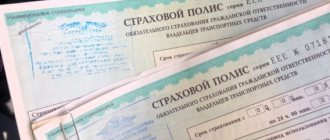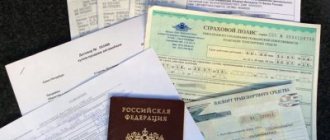How to go through customs
The law on customs clearance of a car is mandatory for everyone, and every driver entering the territory of the Russian Federation with foreign license plates must go through customs.
You need this in order to obtain official permission to travel on Russian roads. State - to check the vehicle for compliance with all standards and regulations. This procedure should be carried out within 24 hours after crossing the border, otherwise your car will become smuggled.
Rules for operating non-customs cleared vehicles
It is prohibited to drive a non-customs-cleared car on the territory of the Russian Federation , the only exception is the temporary import of a vehicle.
By law, such permission is limited to the following periods:
- 6 months current year - for Russian citizens;
- 1 year - for foreigners.
Citizens of foreign countries have the right to cross the border and move within the territory of the Russian Federation with their numbers, registration and documents for 2 months. You cannot drive such a car under a general power of attorney; only its owner has the right to drive the car.
Is it possible to avoid the procedure?
Of course, if you simply enter the country with foreign license plates without filling out any documents, nothing good will come of it. But there is still a way to drive a vehicle that has not cleared customs in Russia. This is a temporary import registration. You can learn about all the necessary documents and the rules for their preparation from the article “Cars without customs clearance from Lithuania and Latvia.” Why these countries? It’s just that they most often bring used cars to Russia from there.
Remember, if you do not clear the car through customs or do something incorrectly, it will be regarded as an administrative or even criminal offense. The result is fines, and in particularly unfavorable circumstances, even imprisonment.
The nuances of using non-customs cleared cars in Russia
How to drive a non-customs cleared car in Russia without violating the rules and regulations established by law? To do this, you just need to know these rules and promptly carry out the necessary procedures and manipulations with a car imported into Russia. A temporary permit to operate a vehicle that has not cleared customs is valid for no more than 6 months. After this time, the car must receive an extension of the period of temporary import from the customs authority located at the place of registration of the owner, or leave the Russian Federation (cross the border with the mandatory closure of temporary import at the customs point).
Information about the closure of temporary import (or its extension) within 15 days is provided to the customs points that processed the import. In the absence of such information, the car ends up in the customs database of “unexported cars”, in respect of which all established customs duties must be collected.
Return entry into Russia using an exported vehicle is possible within the time limits established by law. In this case, the car is again subject to the procedure for temporary import of a vehicle and payment of mandatory customs duties and taxes (for citizens of the Russian Federation). To perform these actions, the owner must provide customs officers with the following set of documents:
- personal passport;
- PTS;
- insurance policy obtained in the country of registration of the car;
- a completed declaration for the temporary import of a vehicle.
Of course, prices for used cars in Europe are much lower than prices for similar models in Russia. Therefore, some motorists mistakenly believe that they can buy a car abroad without registering ownership and operate it in Russia under a general power of attorney without any problems for 2 months. Foreigners entering Russia in their own cars actually have this right. This has nothing to do with citizens of the Russian Federation. Moreover, foreigners are prohibited from issuing general powers of attorney for a vehicle to Russians, even if they themselves are in Russia at the time.
When purchasing a vehicle that has not been cleared through customs, one should not forget about the pitfalls of such an operation. It’s one thing if you consciously take this step, knowing that the car cannot be registered and put on state records, but is only good for spare parts. It's a different matter if you are purchasing a car for personal use. When you try to register a car, you will be bitterly disappointed and face a hefty fine. Moreover, such a “mild” punishment (without confiscation of the vehicle and criminal charges) is provided when the transaction for the purchase of a vehicle was completed in Russia, and you managed to prove your non-involvement in the import of an uncleared vehicle into the country. Willful violation entails much more serious liability.
In what cases is it possible not to clear a car through customs?
Be that as it may, you can’t just drive cars with foreign license plates in Russia on a regular basis. We will provide generalized instructions on how to drive a non-customs-cleared car in Russia.
As mentioned earlier, in Russia you can drive a car that has not cleared customs if it has been temporarily imported. To do this, the car must be registered in another state. This is necessary so that at the border customs officers issue permission for the car to stay in the country. This permit is temporary and is available to foreigners and citizens of the Russian Federation.
If during the established period the car owner did not want to go through customs clearance or part with their car, the procedure will need to be repeated by leaving the country and entering back. Obtaining a temporary permit for a car to stay in the Russian Federation is not only difficult, but also time-consuming. Therefore, such cars do not stay in the country for more than a year. In addition, permission to import cars with foreign registration to citizens of the Russian Federation is given only for 6 months within one year.
In any case, you will need the following documents:
- Passport.
- Insurance policy (must be obtained in the country of registration of the vehicle).
- Documents for a car with foreign registration.
At the customs point of the country where the car is registered, the owner must fill out a temporary import declaration.
Who can drive such a car?
If we have sorted out whether it is possible not to clear a car through customs, an equally important question remains: who has the right to drive it. Only the person who brought the vehicle into the country has the right to use such a car. If you arrange the temporary import of a car yourself, it is much simpler - the documents when issuing an import permit are issued in your name. When a foreigner handles the procedure, although you will have the car at your disposal for a year, you will not be able to drive it. Such transport is only suitable for spare parts.
It is most rational to issue such a permit to foreigners temporarily entering the territory of Russia, as well as to citizens of the Russian Federation who have a residence permit in another country, dual citizenship, or persons working abroad and registered with a consulate.
How long can you drive a non-customs cleared car?
The length of stay of an uncleared vehicle in the country depends on who issued the temporary import and for how long. A foreign citizen has the right to drive a non-customs cleared car for no more than 1 year. A Russian has the opportunity to drive such a car for no more than 6 months within one year.
Is it possible to take a power of attorney from a foreigner?
Unfortunately no. Because only the person who imported it can drive such a car. And a car insurance policy for a car with foreign registration is issued in another country, and foreign citizens cannot be included in it. That is why there are no legal ways to use a foreign car imported by a foreigner.
What the law says
Buyers of foreign vehicles, and it is not at all necessary that they only have passenger vehicles, are given exactly three days to complete the customs clearance procedure, that is, pay a certain tax fee, which gives the right to register the car in accordance with current legislation. Such transport can then be freely sold, donated, bequeathed or inherited. But if the car has not passed through customs, then all these significant legal actions will subsequently be simply inaccessible to it. That is, the owner of such a car will be able to simply drive it, but he simply will not have legal grounds to transfer it to third parties - the stage of re-registration of the car on the territory of Russia has not been completed, which means that all applicable provisions in relation to such a car cannot be fulfilled.
And most importantly, a car that is not registered on the territory of the Russian Federation is not subject to transport taxes, and no penalties are imposed on it. And this can really affect the Russian economy - there is no revenue to the budget, although the car moves across the territory of Russia and, just like other drivers, this illegal owner of the car violates traffic rules.
Many of our drivers are interested in the answer to the question - is it possible to obtain a power of attorney to drive outside our country, but drive foreign transport here in Russia?
It would seem how many true car owners (in whose name the transport is directly registered) issue powers of attorney for their grandchildren or adult children, and they calmly drive along various roads of the country, and do not cause any complaints from the road inspectors. Yes, this rule applies to Russian citizens and cars registered in the same territory, but this cannot be said about foreign citizens. He is a citizen of another state, and Russian laws (not all, but only those relating to movement in an imported car) do not and cannot apply. Only the true owner himself will be able to drive his car, and no one else but himself.
Responsibility for violations of customs rules
As mentioned earlier, evading duties or delaying any documents is an administrative offense. Initial penalties range from 500-2500 rubles for individuals and are charged for:
- Late payment of duties.
- Failure to comply with deadlines for filing declarations.
- Violation of an import ban or any other restriction.
- Delay in a temporary permit (the car was taken out of the country at the wrong time).
But this applies only to minor offenses, minor delays and provided that the amount of debt does not exceed 1 million rubles (major non-payment) or 3 million (especially large). If the amount is greater, criminal penalties are already provided. You face a fine of 100-500 thousand rubles or imprisonment for 2-5 years.
Rules for entry of foreigners
According to the Rules, any foreign citizen upon arrival in Russia in his personal car, registered in his homeland, must register a temporary stay in the territory of our country for himself, as well as temporary import of a car for his “iron horse”. This must be done at the customs post.
When registering, according to federal law, you will need a compulsory motor liability insurance policy valid for the entire duration of your stay in Russia. In this case, the foreigner does not pay any taxes or duties.
The limitation, in this case, is a period of 1 year during which such a vehicle can drive on domestic roads. It is also prohibited to use the car in commercial activities or transfer it for use or ownership to other persons.
But not all foreign citizens are exempt from paying duties. If for some reason the customs authority believes that the owner of the car or his vehicle cannot ensure compliance with the law, then under Art. 136 of the Customs Code of the Russian Federation, a foreign citizen will be required to pay customs duties.
If necessary, the legislation of the Russian Federation provides for the possibility of extending the period of stay in the country, but no more than for another year. In this case, you must contact the customs authority of the region in which the car is located.
Required documents for extension of stay:
1. Documents for the car
- Insurance
- Vehicle Carriage Certificate (VTC)
- Registration certificate
2. Personal documents
- Passport of a citizen of the country from which the person arrived
- Registration
3. Copies of the above documents
If, during your stay on the territory of our country, something happened to the car (accident, theft, etc.) and it is not possible to take it out of the country, then you must inform the customs authorities about this to close the temporary import until the end of your stay in the country.
Which cars are more profitable to clear through customs?
Since 2014, cars from the EURO-5 class can be transported across the border, which has led to an increase in the cost of customs clearance and a decrease in the number of vehicles that can be transported across the border.
Options for purchasing a foreign car and transporting it across the border:
- purchase with the help of an intermediary, transportation and customs clearance on your own;
- carrying out the procedure with the help of customs brokers;
- purchase of a non-customs cleared car in the Russian Federation.
When calculating the price of customs clearance, the engine size and year of production of the car are taken into account; the cheapest car is less than 5 years old with an engine of less than 2 liters.
Purchasing a foreign car for a legal entity will cost more than for a private person, and the reseller will also pay more. The cost is also affected by the class and category of the car; the customs clearance scheme for trucks and passenger cars is also different.
What to do with the car
During this period, the owner of a car with European license plates has 3 options for what to do with it.
► The first is to clear customs. However, the car must meet minimum environmental standards - Euro 2, that is, be no older than 1997. Passenger cars that do not meet this standard cannot be cleared through customs.
► The second option is that the car can be taken out of Ukraine by paying a fine of 8.5 thousand hryvnia. But what to do with this car abroad is unclear.
► The third option is to continue operating the machine in Ukraine. However, this will turn out to be a very expensive pleasure. If in 2022 a policeman stops a car that has not cleared customs, he will impose a fine in the amount of 17 thousand hryvnia or confiscate it.
On the topic: Affordable customs clearance for “Europlates”: The Rada approved the bills
One person cannot clear two cars through customs. According to the law, one citizen of Ukraine is allowed to clear customs only one car or truck. At the same time, the truck must weigh no more than 3.5 tons and comply with the Euro-5 standard, that is, be no older than 2010.
Important! You can calculate the cost of payments for customs clearance of Europlates using the following formula: base rate + engine coefficient + surcharge for a diesel engine. VAT is also charged on the amount of these payments - 20%.











